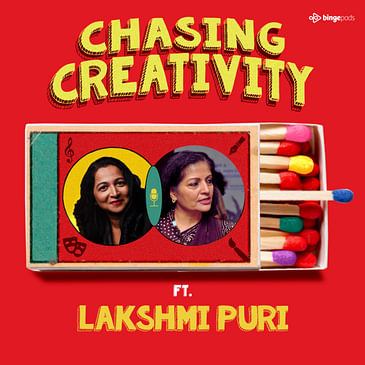Join us on 'Chasing Creativity' for an enlightening dialogue with Lakshmi Puri, former assistant secretary-general at the United Nations and author of 'Swallowing the Sun.' Explore the intersections of leadership and the power of storytelling as Lakshmi shares her insights and experiences from her distinguished career. From the corridors of the UN to the pages of her book, discover the wisdom and inspiration behind her remarkable journey.

Swallowing the Sun: A Conversation with Lakshmi Puri
Join us on 'Chasing Creativity' for an enlightening dialogue with Lakshmi Puri, former assistant secretary-general at the United Nations and author of 'Swallowing the Sun.' Explore the intersections of leadership and the power of storytelling as Lakshmi shares her insights and experiences from her distinguished career. From the corridors of the UN to the pages of her book, discover the wisdom and inspiration behind her remarkable journey.

